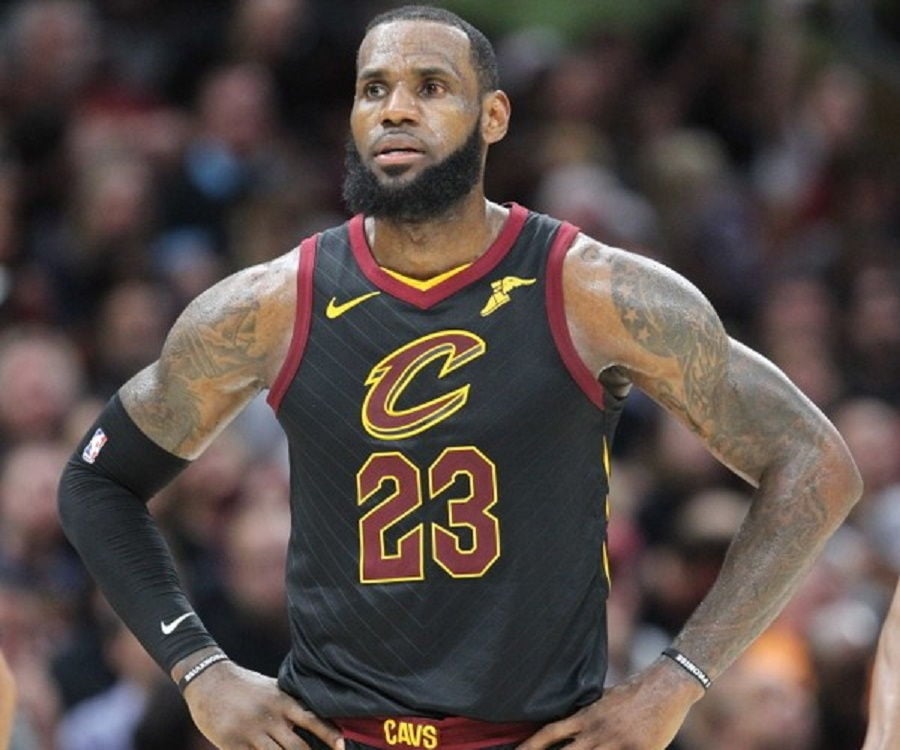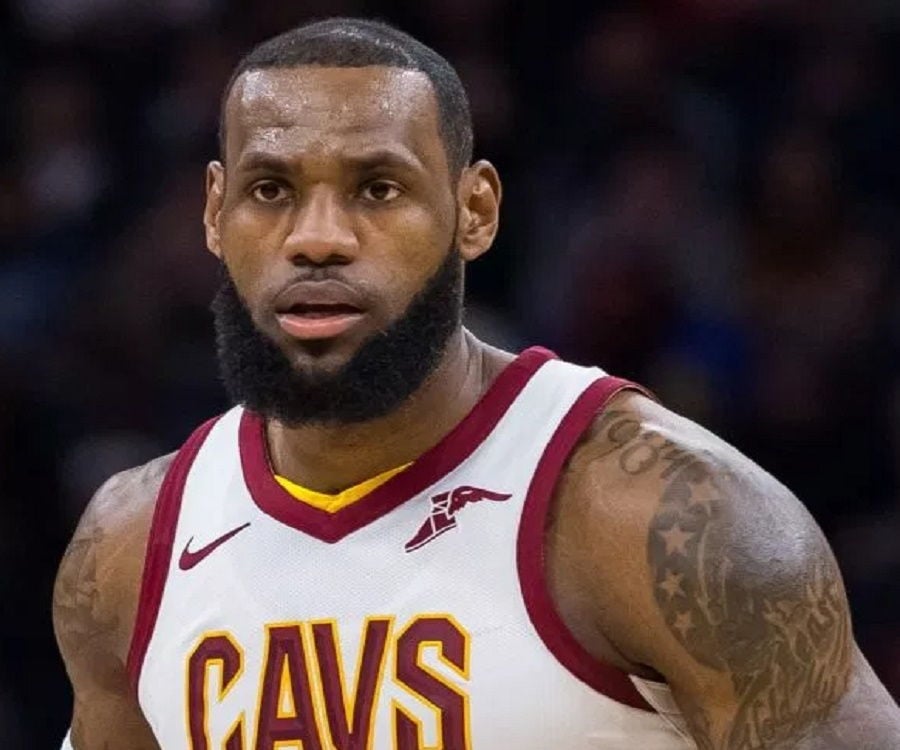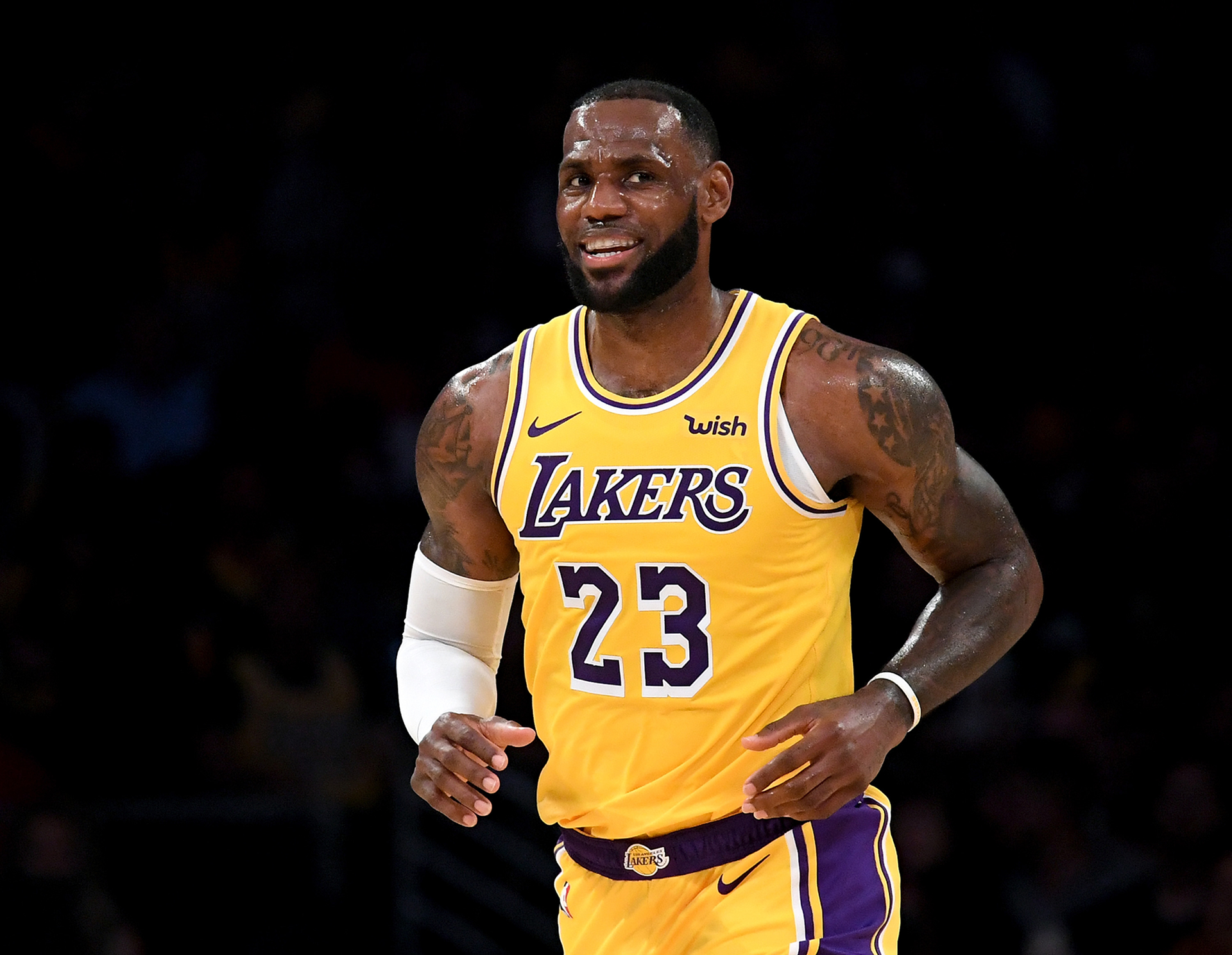The conversation around athletes and their public actions, particularly during moments of national display, often sparks wide-ranging discussions. It’s a pretty big deal, you know. When a prominent figure, a superstar even, chooses to express a viewpoint, it gets a lot of attention. People really pay close mind. Such actions, like the idea of an athlete choosing to sit during the national anthem, prompt many to consider what it means for sports, for society, and for the individual involved. It's a topic that, frankly, brings out a lot of different thoughts and feelings from folks everywhere.
This kind of action, whether it's happened or is simply a matter of public thought, really shines a light on the role athletes play beyond their games. They are, after all, people with their own beliefs and concerns, just like anyone else. So, when someone like LeBron James, a person of immense public standing, is brought into this sort of discussion, the weight of the moment feels quite heavy. His influence, you see, stretches far past the basketball court. It truly does.
For many, this isn't just about a single gesture; it's about the larger ongoing discussion of social justice and individual expression. It makes us think about the responsibilities that come with being a public figure, and how those responsibilities might sometimes clash with personal convictions. So, what does it mean when the name "LeBron James" comes up in these kinds of important conversations about the national anthem? We’ll take a closer look at all that, more or less, and what it could mean.
Table of Contents
- LeBron James: A Career in the Spotlight
- Personal Details and Bio Data
- The Meaning Behind Athlete Protests
- If LeBron Were to Sit: The Discussion
- Public Reaction and Media Focus
- LeBron's History of Speaking Out
- The Ongoing Conversation
- Frequently Asked Questions
LeBron James: A Career in the Spotlight
LeBron James, born on December 30, 1984, is an American professional basketball player, currently playing for the Los Angeles Lakers in the National Basketball Association. His journey in the sport has been, to put it mildly, quite extraordinary. He's been at the top of the game for a very long time, which is something few players manage to do. His presence on the court, you know, is simply undeniable.
His career is filled with a truly impressive collection of achievements. He has, for instance, won four NBA championships, and he's been named the NBA Finals MVP four times too. These are just some of the big ones, as a matter of fact, among many, many others. His consistent high-level play has kept him in the public eye for over two decades, which is a remarkable feat for any athlete.
As of today, his career averages show him scoring 24.4 points, grabbing 7.8 rebounds, and dishing out 8.2 assists per game. These numbers, well, they speak volumes about his overall impact on the game. He's also reportedly opted into his $52.6 million player option, making him the very first player in NBA history to play a 23rd season. This shows his incredible dedication and staying power, which is pretty amazing.
With the end of his career likely on the horizon, fans around the world are, as has often been the situation this century, really trying to figure out what's going on in the mind of this Los Angeles Lakers forward. He's a player whose every move, on and off the court, draws significant attention. It's just how it is with someone of his standing, you know.
Personal Details and Bio Data
| Full Name | LeBron Raymone James Sr. |
| Born | December 30, 1984 |
| Current Team | Los Angeles Lakers |
| Position | Small Forward |
| NBA Championships | 4 |
| NBA Finals MVP Awards | 4 |
| Career Points Average | 24.4 |
| Career Rebounds Average | 7.8 |
| Career Assists Average | 8.2 |
| Seasons Played (as of latest reports) | 22 (reportedly opting into 23rd) |
The Meaning Behind Athlete Protests
Athlete protests during the national anthem are not a new thing, of course. They have a long history, dating back many years, with various sports figures using their platforms to make a point. These actions are typically not meant to disrespect the flag itself, but rather to bring attention to specific issues they feel strongly about. It's often about drawing eyes to social injustices or inequalities that need fixing, in a way.
For many athletes, the decision to take a stand during the anthem comes from a deep sense of personal conviction. They might feel a duty to speak up for those who don't have as loud a voice. This kind of public display is a way to use their visibility to spark conversations that might not otherwise happen. It really gets people talking, you see, which is often the goal.
The issues that motivate such actions can vary widely, but they often center on civil rights, racial inequality, or police actions. Athletes, because of their widespread recognition, have a unique ability to put these topics right in front of a very large audience. It's a powerful tool they possess, and they often choose to use it for causes they believe in. So, it's more than just a simple gesture, you know.
These protests, whether they involve sitting, kneeling, or raising a fist, are meant to challenge people to think. They ask us to consider the conditions that lead individuals to feel such a strong need to act. It's a call for reflection, basically, on what's going on in the world around us. This is why these moments, when they happen, stick in our minds for a long time.
If LeBron Were to Sit: The Discussion
The very idea of LeBron James sitting during the national anthem brings up a whole host of considerations. Given his immense fame and influence, such an action would, without a doubt, become a massive talking point globally. It would be discussed everywhere, from sports shows to news programs, and certainly all over social media. People would have very strong opinions, too it's almost certain.
His public actions are always under intense scrutiny, and this would be no different. If he were to choose such a path, many would immediately try to figure out his reasons. Was it about a specific event? Was it a broader statement about societal issues? People would really want to know the "why" behind it, which is natural when someone so well-known does something unexpected. That, is that, a big part of the discussion.
The impact of such a gesture, were it to happen, would ripple through the sports world and beyond. Other athletes might feel inspired to follow suit, or they might feel pressured to take a different stance. It could lead to a wave of similar actions, or it could create a clear divide among players and fans. It's a very potent kind of statement, you see.
The discussion around "LeBron sits during national anthem" isn't just about the act itself. It's about what it symbolizes. It points to the ongoing tension between patriotism, individual rights, and the role of public figures in social movements. People would look to his past statements and actions to try and piece together the full picture. It's a really complex situation, in some respects.
For some, it would be seen as a courageous act of conviction, a brave stand for justice. They would applaud him for using his platform to address important issues. For others, it might be viewed as disrespectful, a gesture that divides rather than unites. These different perspectives would clash, creating a lively, often heated, public debate. This is just how these things tend to be, usually.
The media, naturally, would play a huge part in shaping the narrative. Every angle would be explored, every past quote analyzed. The conversation would likely dominate sports news for days, maybe even weeks. It highlights just how much attention is paid to someone like LeBron, and how any action he takes can become a major cultural event. It really is quite something, you know.
It also forces us to consider the pressures athletes face. They are expected to perform at the highest level, but they are also increasingly seen as voices for change. Balancing these roles can be incredibly difficult, and any public stand carries significant personal and professional risks. So, it's a very big decision for anyone, let alone someone like him.
Public Reaction and Media Focus
The public's reaction to an action like "LeBron sits during national anthem" would be incredibly varied, as we've seen with similar situations involving other athletes. There would be strong support from those who share his views on social issues, seeing it as a powerful form of protest. They would likely praise his courage and his willingness to speak truth to power. This is often the case, you know, when athletes take a stand.
On the other hand, there would be considerable criticism from those who believe the anthem and flag should be treated with unwavering reverence. They might see the act as disrespectful to the military, to the country, or to the traditions of the sport. These differing viewpoints would create a very sharp division in public opinion, pretty much guaranteed. It would be a significant talking point, indeed.
Social media platforms would, of course, light up with comments, discussions, and arguments. Hashtags related to the event would trend immediately, with people from all walks of life sharing their thoughts. It's where a lot of the initial public reaction would play out, very quickly and very widely. This is how news spreads today, basically.
Traditional media outlets, like news channels and sports networks, would dedicate extensive coverage to the story. There would be panel discussions, interviews, and opinion pieces analyzing every aspect of the situation. Experts would weigh in on the implications for the NBA, for athlete activism, and for the broader cultural landscape. They'd really dig into it, you know, from every possible angle.
The focus would extend beyond just LeBron himself. It would bring renewed attention to the issues he might be protesting, sparking conversations in homes and workplaces across the nation. It could even influence political discussions, given the intersection of sports, culture, and social issues. So, the ripple effects would be quite far-reaching.
Sports fans, in particular, would find themselves grappling with their feelings. Some might feel torn between their love for the game and their views on the protest. Others might see it as a moment that defines their loyalty, either to the athlete or to a particular viewpoint. It makes people really think about what matters most to them, which is a big deal.
Ultimately, the public reaction and media focus would serve to amplify the message, whatever it might be, and force a wider conversation about the issues at hand. It's how these moments, when a public figure takes a stand, become part of our collective memory and discussion. It really is, in a way, a moment that gets etched into history.
LeBron's History of Speaking Out
LeBron James has, over his long career, shown a clear willingness to speak his mind on important social matters. He hasn't shied away from using his voice, which is a powerful thing for someone of his stature. He has, for instance, addressed issues related to racial injustice, police accountability, and voting rights. This isn't new behavior for him, you know.
He has often used press conferences, social media, and even awards speeches to share his perspectives. These moments have frequently sparked public discussion and sometimes even controversy. But he has consistently maintained that he feels a responsibility to use his platform for good, to bring attention to things that matter. He truly believes in that, apparently.
One notable example includes his involvement in campaigns for social justice, lending his support and his name to various initiatives. He has also been a strong advocate for education, particularly for young people in his hometown. These actions show a consistent pattern of engagement with issues beyond the basketball court. He's very much involved, as a matter of fact.
His approach has often been thoughtful, aiming to promote dialogue and understanding rather than simply to provoke. He typically frames his comments around themes of equality and fairness, encouraging people to come together to address societal problems. This is his way, you know, of trying to make a difference in the world.
This history of activism means that if a situation like "LeBron sits during national anthem" were to occur, it would be seen as a continuation of his established pattern. It wouldn't be a sudden, out-of-character act, but rather another instance of him using his voice. People would connect it to his previous statements and actions, naturally. Learn more about LeBron James on our site.
His influence in these discussions is undeniable. When LeBron speaks, people listen, whether they agree with him or not. This is why any public action he takes, particularly one as symbolic as a national anthem protest, carries such immense weight and draws so much attention. It's just the way it is with global figures, you know. Check out news, rumors, and game highlights related to LeBron James on ESPN.
He has shown that he's not afraid to face criticism for his beliefs. This resilience has allowed him to remain a consistent voice in the conversation about social change. So, his track record tells us quite a bit about how he might approach such a moment, and how the public might react to it. It’s a pretty clear pattern, really.
The Ongoing Conversation
The conversation around athletes, their rights to protest, and their role in society is an ongoing one. It's not something that gets settled easily, and it tends to come up again and again. Each time a prominent athlete takes a stand, it reignites the discussion, forcing us to re-examine our own views and the values we hold. It’s a bit like a recurring theme, you know.
Figures like LeBron James, with their vast platforms, play a vital part in keeping these discussions alive. Whether they choose to sit, kneel, or simply speak out, their actions prompt millions of people to think about important issues. It helps to move the conversation forward, even if it feels slow at times. So, it's a big deal for everyone involved.
The sports world, in particular, has become a significant arena for these kinds of social statements. It brings together people from all backgrounds, and when an athlete makes a stand, it can reach audiences that might not otherwise engage with such topics. It makes for a very wide reach, actually.
As long as there are social issues that people feel strongly about, and as long as athletes continue to use their voices, these conversations will continue. The idea of "LeBron sits during national anthem" is just one example of how these discussions can manifest, showing the power of individual expression in a very public way. It's a topic that will likely remain relevant, more or less, for quite some time. You can learn more about athlete activism on our site.
Frequently Asked Questions
Here are some common questions people have about athletes and national anthem protests:
What is the history of athletes protesting during the national anthem?
Athlete protests during the national anthem have a long history, dating back to the 1960s with figures like Tommie Smith and John Carlos. These actions are often symbolic gestures meant to draw attention to social or political issues. They've happened across various sports and eras, showing a consistent thread of athletes using their platform. It’s a pretty well-known part of sports history, you know.
Why do some athletes choose to protest during the national anthem?
Athletes choose to protest during the national anthem for a variety of reasons, typically centered on social justice concerns. They might be protesting racial inequality, police actions, or other systemic issues they feel are unjust. The goal is usually to raise awareness and spark dialogue about these important topics, hoping to bring about positive change. It's about using their voice, basically, for what they believe in.
What impact do athlete protests have on public opinion?
Athlete protests can have a very significant impact on public opinion, sparking widespread discussion and often dividing people. Some people find them inspiring and supportive of the athlete's cause, while others view them as disrespectful or inappropriate. The protests often force people to confront uncomfortable truths and consider different perspectives, which is a big part of their influence. So, they really get people thinking, you know.



